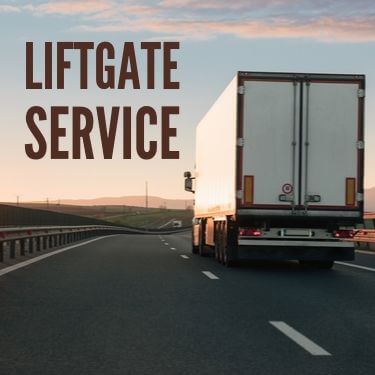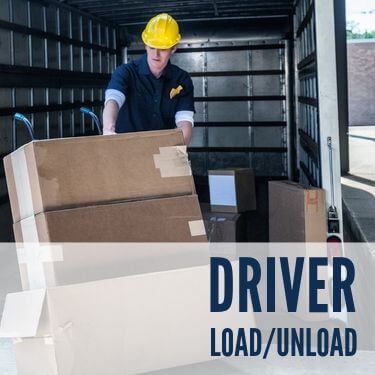Most truckload accessorial charges are given to you as part of your final bill, and they can vary widely from carrier to carrier. By reading on and making yourself aware of some of the most common accessorial charges, you can prepare your budget accordingly and avoid any nasty surprises on your final freight bill.
A truckload accessorial charge is an additional expense charged to a shipper or receiver for a service that is outside of normal transportation procedures. Truckload accessorial charges are common in the industry, and you should know about them if you’re going to understand the pricing and service before your business utilizes it.
The variety of truckload accessorial charges and the cost of each will vary from company to company. Knowing the details of each charge and what to expect in terms of cost will provide you with the necessary information you need when shipping freight.
The cost of accessorial charges will vary from company to company. The charge may be presented as a flat fee included in the overall cost of a shipment or a percentage that is based on the overall cost of a shipment.
Some companies may also charge for some accessorials, while others may not charge for the same things. It all depends on the company, so discussing this with them beforehand is key to figuring out how much you’ll likely spend when the invoice comes through. It’s also worth noting that if you know you will need a service such as inside delivery beforehand, booking it will help you to avoid extortionate fees and an unexpected final bill. More on this later.
Now, let’s discuss some of the most common accessorial charges that shippers deal with.
A detention truckload accessorial charge is one of the most common accessorial charges given today. This charge is given when a carrier is delayed for any reason at a shipper/receiver. Most shipping contracts allow for a standard amount of detention time. However, any time that a driver is held up beyond the time specified in the contract will likely incur a hefty detention fee. It’s worthwhile to determine the allowable detention time, as well as the cost of detention fees when booking a freight shipment. If you know that a shipment may be held for longer than allowed, you may be able to negotiate an increase in the allowable time or pay a lower cost upfront.
Things to remember with detention charges include:

In short, detention charges will be charged when the shipper fails to load or release the driver in a timely manner. The term ‘per-diem charges’ (per day charges) may also be used interchangeably in reference to detention charges.
Detention charges can get a little confusing, because they can refer to a trucking related fee based on driver waiting time, or they can refer to detention of the carriage itself. For goods that are imported and held at ocean loading docks, 1-2 hours of detention are provided at no additional charge. Anything beyond this time will usually result in a detention charge. Again, this is something that will need to be discussed with each carrier.
Avoiding Detention Charges
Limited access is a common charge that’s handed out despite the fact that many people aren’t familiar with it. To put it simply, a limited access charge is a charge that is added on to your invoice in addition to other charges when a delivery point is difficult to access.
One example, is a limited access location that has not already been specified to the carrier. If a shipment is booked already but the location turns out to be limited access, it will not be designated this way by the driver, causing inconveniences, and a billing adjustment will take place. Any situation in which a driver isn’t able to easily access a delivery point will incur a limited access charge.
If you know that the location is limited access beforehand, you can select this as an accessorial charge when booking the shipment, so that there are no surprises when your invoice comes through.
A liftgate is an accessory that can be found on the back of a freight trailer to deliver goods when a loading dock isn’t available. A liftgate may be required when the cargo weighs over 100lbs and there is no dock. Most freight trailers don’t include liftgates unless they’re required for a specific delivery. For this reason, the use of a liftgate in order to deliver a shipment almost always incurs an accessorial charge.
Booking the liftgate when you book your shipment is important, so always do this if you know you’re going to need it ahead of time. This is because failure to do so will slow things down and will likely result in extra charges costing you even more than simply ordering ahead of time.
If you don’t order a liftgate and it turns out that you need one, the driver will need to stop the pickup or delivery and reschedule. The latter is what will result in additional charges for you.

Of course, this charge will depend on the carrier, but the average cost of a liftgate service is around $75. If you’re unsure, the best way to find out is to call and inquire.
You can avoid paying liftgate delivery costs by staying mindful:
If the above are not optional for you, then paying for a liftgate service may be the only way to go about completing your pickup or delivery.
The inside delivery truckload accessorial fee is added to an invoice when the motor carrier must go inside (beyond the front door or loading dock) to pick up the shipment. How this fee is defined will vary from company to company.
The reason there is a charge for this is because it often requires additional equipment, such as a pallet jack to lift the shipment up curbs and stairs. It will almost certainly require more time, and it may even require additional manpower. If this is not booked beforehand, the carrier will no doubt spend more time and resources on your delivery, thus warranting the extra charges added to your bill.
If a carrier has to store a shipper’s delivery for whatever reason, the carrier will likely charge a storage fee. This may be charged by the hour or by the day depending on the individual company. There is a difference between storage and warehousing, so you will need to keep this in mind. Storage is only charged as an accessorial fee if it wasn’t established beforehand that the shipper would need to store the goods for a period of time.
Storage charges may apply for a few reasons, including:

Life happens and things go awry. This can mean that orders occasionally fall through even after you have paid for a truck or service. Many carrier contracts will already have a clause for allowing a TONU, usually with some limitations. Make sure you read through this carefully so you understand what will happen if an order does fall through, and that you’re aware of the cost to you.
There is usually a charge if the truck is cancelled after a cut off time that has been pre-established, so you may be ok if the truck was cancelled before a certain time frame. The cost for a TONU can range from $150-500, so it’s important to avoid this whenever possible.
There are a few reasons that a carrier might need to redeliver your order. For example, if there was nobody available to accept the delivery, if the shipment was rejected by the receiver, or if the necessary equipment could not be found on site. Redelivery is usually one of the most expensive truckload accessorial charges to receive on your invoice, so it is best that you avoid it at all costs. It is so expensive because in essence, it means that the same job must be done all over again and the carrier misses out on further income.
Additional stop charges are usually added when a shipment has two or more destinations that require a driver to make numerous stops as they make their way there. A multi stop load commonly causes delays because hiccups may be present on the way there.
If carrying other loads at the same time, delays will equate to a loss in productivity that the carrier will need to take into consideration when charging you the appropriate fee.

A carrier that must unload a vehicle usually does so outside of their general job requirements. The driver may unload or load the freight and charge you for the labor it takes them to do so. At many distribution centers, outside laborers are brought in to unload cargo. Distributors then pass these charges on to shippers as something called a ‘lumper’ fee or charge.
However, in most cases this charge will only be applied if it is pre-established before the fact that the driver is not responsible for loading/unloading the freight but they end up doing it anyway. If you’re unsure as to whether or not the driver is responsible for loading unloading freight, ask before finalizing your shipment. The majority of drivers delivering goods for other companies deal with no touch freight.

This charge is added to an invoice when the carrier must reclassify and reweigh the load. For example, if the correct details were not provided, then the carrier will need to rework your order, taking up extra time and resources. It’s so important that the correct information is provided beforehand, as the weight, class, and dimensions of the load all play a part in how the truck is loaded. If the details are not right, this causes huge disruptions.
Fees will then be added to the final bill for lost productivity when this happens. The only way to avoid these fees is to provide accurate shipment details - we will go into this in more detail later.
Sending a truck to a facility outside of what is considered normal operating hours is considered an after hours delivery, and will usually cost extra. This is because the carrier might struggle to deliver something as they usually would when taking on an after hours delivery. They might find hiccups along the way, making it difficult for them to get where they need to go, find who they need to communicate with, and so on. Because of this, they will charge a fee to make up for the time they have lost.
Some carriers won’t charge for after hours deliveries, so it’s important to check with carriers when booking freight to see how they handle after hours deliveries.

A fuel surcharge is an additional cost that’s tacked onto a freight bill according to the current price of fuel and a carrier’s surcharge pricing structure. You will be able to find the surcharge on the carrier’s pricing table. Each carrier will have their own fuel surcharge pricing in place, but will likely be similar to many others. This is because all carriers base their fuel surcharge pricing and range based on the average price of fuel.
The way that most carriers arrange their fuel surcharge pricing is through a surcharge range. For example, if the average cost of fuel is $2.75 per gallon, a carrier may establish a surcharge range of $2.76-$3.25. If the cost of fuel during a shipment falls within this range, the shipper or receiver will pay a surcharge based on the final cost of the fuel. This cost typically takes the form of a flat fee, as well as a percentage. Higher ranges can invoke higher percentages and fees.
It’s helpful to be aware of how fuel surcharges work so there isn’t confusion when reviewing a shipping bill.

Although accessorial charges are common charges added on to an invoice, they’re often negotiable. There may well be a way you can negotiate so that you can cut down these charges and ensure you barely ever encounter them. However, you will have more power negotiating these accessorial charges if you are aware of them beforehand and start the negotiations here, rather than once the carrier has been inconvenienced by your shipment numerous times.
In each carrier agreement, terms are laid out which are explicitly defined so the shipper knows what to expect should they inconvenience the carrier. These terms include rates, fees, guaranteed service refunds, and more. This doesn’t prohibit the financially responsible party from negotiating any of these terms. Obviously, there’s no guarantee of success, but it’s certainly possible.
Negotiating the best possible terms for your contract up front is absolutely key. Don't wait. Make sure you have all of the data you need to back up your points before you do so, too. The below pointers will help you.
Remember: Every Negotiation Matters
Make sure you optimize your negotiations every time. Having valuable data on hand will lend credibility when negotiating rates and terms. A third-party logistics company like R+L Global Logistics can assist in analyzing current agreements to determine if there’s room for negotiation.
Use Effective Negotiation Tools
Using the right negotiation tools is important. Simply asking for a lower rate or more agreeable terms without a valid explanation will likely not end well. In business, quid pro quo is often a defining factor in the success or failure of negotiations. When negotiating shipping rates or terms of a contract, make sure to “sell” the company you’re negotiating with on why they should agree to the change you’re requesting. This is where the quid pro quo aspect of negotiations comes in; What are you going to do for them?
Some of the enticing offers that you can provide include:
Negotiate Domestic And International Rates At The Same Time
When shipping both domestically and internationally, it makes sense to manage these rates through a freight broker if possible. A freight broker will simplify the process by coordinating the entire shipment from start to finish. This is in stark contrast to doing it by yourself and dealing with multiple parties. Many freight brokers also have pre-established rates with carriers that are more affordable than what might be publicly available. These rates comes from agreements that have been made beforehand based on a number of factors including volume and frequency of shipments.
R+L Global Logistics has an established group of highly qualified and vetted carriers that handle both domestic and international shipments. If you’re handling this process yourself, we can save you time and money by taking this task off of your plate.
Making Your Value Clear To Carriers
Making sure the carrier can see how valuable your shipments are based on package characteristics is essential. A carrier will analyze your company’s shipping profile so that they can figure out what discounts to offer, which is why it’s a must know in the carrier’s terms how valuable your shipments are to them.
If your company has many future shipments that will need to be delivered, make it known. A carrier will be more likely to offer better rates if there is future business to be had. Well-known or rising companies can also command more negotiating power since the possibility of increased business is on the table.
Continue Negotiations Later On Down The Line
You might think that you only have to take on the negotiation stage once, but this is not the case. The process should not stop even once you have your carrier and have signed a contract. Quarterly reviews can help a shipper build a partnership with the carrier, and this allows you to get comfortable with asking questions. You may ask:
Building solid relationships is important in almost every business deal, and this one is no different. Have the idea of building a solid relationship in your mind from the beginning. When you can build a solid relationship with your carrier, you are more likely to continue getting even better deals later on down the line.
Many carriers will also hold off on providing better rates and terms until they’ve established a positive working relationship with you. Once you’re seen as a reliable shipper, a carrier or transportation company will likely be more open to negotiating with you.
Use A Freight Bill Auditor
A freight bill auditor can review your invoices for errors. Millions of dollars worth of mistakes are made almost every day, and these mistakes are almost never caught by shippers. Don't be afraid to get some outside perspective on your contracts and invoices if you really want to stay on top of these costs and ensure you’re not missing anything important.
Knowing how to negotiate accessorial charges is valuable, but avoiding them in the first place, if possible, is even better. The tips below can help shippers avoid these costly fees in some cases.
Provide Accurate Shipment Measurements
Providing accurate shipment measurements and weight is one of the most important things you can do if you want to avoid accessorial charges. Giving out inaccurate shipment dimensions is one of the most common reasons for pricing adjustments. The majority of freight carriers classify shipments based on freight density, and if there is any variation on the listed weight or dimensions, the shipment class changes. When this happens, reclass charges occur. You can avoid this by carefully scaling the handling units and measuring all sides before you search for shipping rates.
Providing accurate shipment details allows carriers to give you an accurate quote. Remember, you will end up paying more if the shipment has to be reclassified, so getting your details right in the first place is key.

Below is a list of the measurements you will usually need to provide:
Have A Good Idea Of The Accessorial Charges And Real Delivery Conditions Before Partnering Up
Accessorial charges are very common, but the more aware of them you are, the less likely you are to have to deal with the unexpected kind.
If you are aware of them, then you can book them beforehand and may end up paying less than you would if they had to be added on to your invoice. Make sure you know if you’re going to need a liftgate service, for example, or if the delivery will be limited access. You will save a lot of hassle for the carrier by doing this, too.
If accessorial charges are added to an invoice,this is often done without prior notification before a new freight bill arriving. This means unexpected fees that could mess up your budget or calculations if you don’t make an effort to become aware of real delivery conditions beforehand.
Becoming mindful of real pick up and delivery conditions is one of the only ways you will be able to avoid truckload accessorial charges. Does the pick up or delivery location have a loading dock or forklift? Will the carrier need to go inside to make a delivery? Are you likely to need them to store your shipment for you?
All you need to do is make the effort to understand the real conditions so that the correct service can be requested. This will also help you to build a better relationship with the carrier, as they will be better prepared, making it less hassle for them.
Make Sure the Receiver is Ready When The Carrier Arrives
Whether this is a shipment that strictly involves your own company or another company, you need to confirm the conditions of the delivery location. Ensure the freight and dock crew are going to be ready for the time the carrier shows up. The majority of carriers are narrowing down on free time at the point of pick up or delivery. By ensuring your freight is ready, you are going to reduce the chances of detention fees for examples.
If you’re coordinating a shipment to a third party, confirm the details of the delivery location:
Not asking these questions or having incorrect answers to these questions can lead to unexpected and unwanted accessorial charges.
Make Sure Your Shipment Documentation Is Prepared Carefully
Inaccurate information may result in freight corrections or even a misrouted freight. By making sure you have given proper shipment documentation, you will avoid creating further confusion and those unexpected charges on your final invoice.
At R+L Global Logistics, we empower businesses worldwide to ship smarter. We are in relentless pursuit of customer satisfaction, which is why we make commitments and we stick to them.
Shipping services include:
We deliver exceptional logistics and transportation solutions for our clients, and we are known as one of the leading providers of service through each step in the supply chain. We are able to work alongside you to develop a complete shipping, logistics, and supply chain technology solution. Our service can help you to compete in the global marketplace and improve overall efficiency for your business.
While we don’t specialize in serving any specific industry, our experience in a variety of industries ensures that we can serve you. These industries include:
We offer reliable experts & superior results, whatever industry you may be in. When you choose to work with our experienced team, you can sit back and let us handle your domestic & international shipping needs with peace of mind. No matter whether you're shipping cross country from California to Florida or from Texas to Idaho, we're at your service.
Give us a call at (866) 353-7178 or fill out the form below to get started.
R+L Global Logistics
315 NE 14th St., Ocala, FL 34470